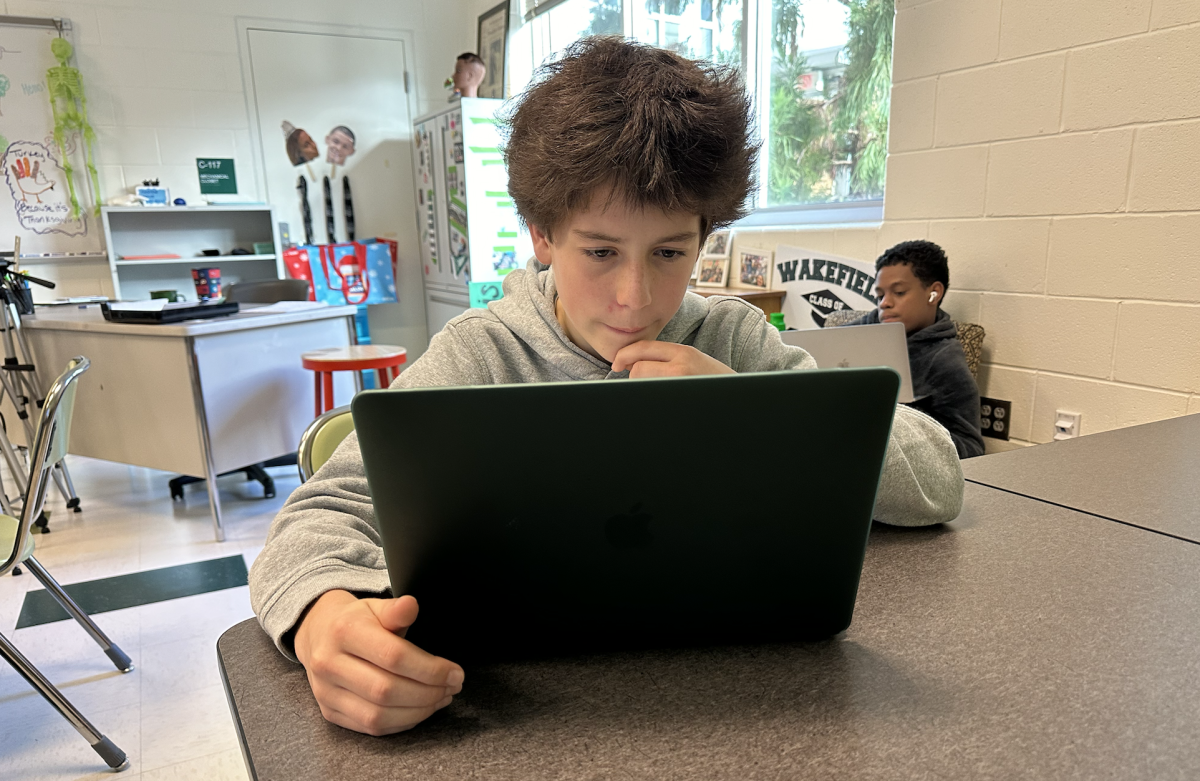Studying is one of the most important things in high-school, yet many students have trouble studying to be ready for tests on time. Let’s look at some of the best studying techniques that YOU can master to become better at it.
Senior Emerson Reifsteck (my sister) said, “the worst place to study is in your bed as it stops you from being productive and makes you want to stop working and fall asleep. But the best places to study include quiet environments with minimal distractions such as the library.” Emerson also stated that the worst time to study is when you’re tired or not totally concentrating because this can lead to a loss of memory on what you studied. However, the best time to study is when you’re energized and concentrated. Another thing Emerson said was that as someone who is easily distracted, the best way to avoid distractions is closing distracting tabs, putting in airpods and listening to white noise. And our final question to Emerson was ,“How do you balance school work with sports as a multi-sport athlete?” She uses sports practices as a break between school and homework so she can get back to work when she gets home.
Some broad studying tips to remember include:
Before studying, schedule your time – set times to fit your personal schedule – time management is very important.
Learn to take notes efficiently – create a bullet point system, and shorten your writing by using abbreviations and/or symbols.
Use your time wisely – take breaks when necessary and stay away from distractions.
Use creative studying – making flashcards – visual examples are proven to improve understanding and is helpful for reading comprehension
Stay organized – it is good to keep notes and study methods clean and organized.
Keep a list of what needs to be done – a to-do list will allow you to track your progress and know what needs to be done and what is already done.
One thing that is often overlooked is keeping yourself healthy – getting enough sleep, and feeding yourself well as this lets you feel good and focus better.
A mistake many students make is studying right before bed time or when you are not fully committed and awake – this causes you to forget the material and not be as focused.
More specific studying techniques include:
Active Recall and Retrieval Practice: Learning by Testing Yourself
According to usa.edu,one of the most powerful ways to study is through active recall, a process of testing oneself on material rather than passively reviewing notes or textbooks. Studies show that actively engaging with information—trying to remember details without looking at the text—significantly improves memory and understanding. This method not only boosts memory but also highlights areas where students need further review.
Retrieval practice can be done through flashcards, using apps like Quizlet, or simply quizzing oneself verbally. For subjects that involve extensive memorization, such as history or biology, active recall ensures that students aren’t just barely analyzing but truly mastering the material. Students who make retrieval a regular part of their study routine often retain information longer and perform better on exams than those who rely solely on rereading and going over notes.
Spaced Repetition: Timing for Long-Term Retention
Another strategy usa.edu suggests is spaced repetition – another very effective studying technique, focusing on reviewing material over progressively longer periods. For instance, after initially learning a concept, a student might review it a day later, then three days later, then a week later, and so on. This approach presents what psychologists call the “spacing effect,” where information is more likely to be retained when learned across time rather than crammed into a single study session.
This method is especially helpful for subjects that require consistent recall of foundational knowledge, such as mathematics or languages. Using spaced repetition software (SRS) the spaced repetition feature in Quizlet allows students to schedule reviews automatically, which is especially beneficial for students balancing multiple subjects.
Pomodoro Technique: Efficient Study Sessions with Breaks
According to pomodorotechnique.com, many students struggle with long, uninterrupted study sessions that can lead to burnout and reduced productivity. The Pomodoro Technique offers an efficient solution by breaking study time into intervals, typically 25 minutes of focused work followed by a 5-minute break. After four “Pomodoros,” or work sessions, students take a longer break of 15-30 minutes.
The technique is grounded in cognitive psychology, as short breaks between focused periods help prevent mental fatigue. This method is excellent for breaking down large tasks and is particularly helpful for assignments that might seem overwhelming at first. By creating a balance between work and rest, the Pomodoro Technique enhances focus and keeps students motivated throughout longer study periods.
Time Blocking and Goal Setting: Organizing for Success
Todoist.com tells us that time blocking is a powerful time management strategy (similar to the pomodoro technique) where students divide their whole day into blocks dedicated to specific tasks. For instance, a student might designate one hour for math homework, followed by 30 minutes for reading a chapter in history. This approach promotes structure and prevents the trap of spending too much time on one subject while neglecting others.
Hand in hand with time blocking, goal setting—defining clear, achievable study goals gives students a roadmap for success. Setting both short-term goals (such as completing a chapter by the end of the day) and long-term goals (like improving a grade by the end of the semester) helps students track progress and stay motivated. Breaking down bigger goals into manageable tasks provides a sense of accomplishment, reduces procrastination and helps students maintain momentum.
Studying can feel overqwhelming, and this is an exhaustive list of techniques. Try one that sounds appealing, and if that doesn’t work move on to the next one. It’s crucial to do well when studying in high school as it’s one of the most important things that affects your grades.



